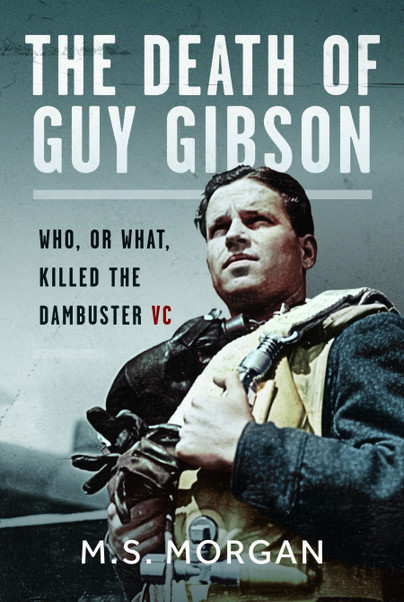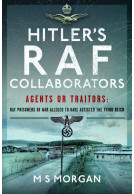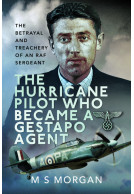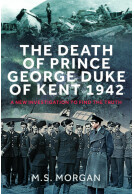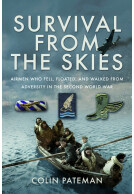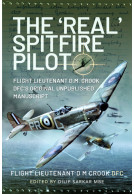The Death of Guy Gibson (Hardback)
Who, or What, Killed the Dambuster VC
(click here for international delivery rates)
Need a currency converter? Check XE.com for live rates
| Other formats available - Buy the Hardback and get the eBook for £1.99! | Price |
|---|---|
| The Death of Guy Gibson ePub (8.7 MB) Add to Basket | £14.99 |
On the night of 19/20 September 1944, a force of 227 Avro Lancasters and ten de Havilland Mosquitoes was despatched to attack the German towns of Mönchengladbach and Rheydt. The Master Bomber for the raid was none other than Wing Commander Guy Penrose Gibson VC, DSO & Bar, DFC & Bar. Along with his navigator, Squadron Leader James Warwick DFC, Gibson was flying Mosquito KB627 of 627 Squadron from RAF Coningsby, where he was serving as the Base Operations Officer.
By this stage of the Second World War, Gibson was arguably one of the most famous of all the Allied aviators. Aged just 26, few in the country, if not across the Allied world as a whole, would not have heard his name or seen a picture of his face. It was his leadership of the daring Dambusters Raid, Operation Chastise, in May 1944 that firmly propelled him into the public’s eye – and ultimately led to his award of the Victoria Cross.
Gibson need not have been flying that fateful night. Following his involvement in the attack on the Ruhr dams, and a subsequent goodwill lecture tour of the United States, Gibson, a veteran of 170 or more operational sorties, would have been entitled to a less front-line role. Churchill, for example, had hoped that Gibson would stand for election as a Member of Parliament. Gibson, however, was soon agitating a return to flying duties – resulting in his participation in the attack on Mönchengladbach and Rheydt.
The raid was a success. Throughout the operation, Gibson’s instructions over the target were easily heard and gave no hint of impending trouble. It was during the return leg that something went wrong. At around 22.30 hours on the 19th, Gibson’s Mosquito slammed into the ground at Steenbergen in the Netherlands; both men on board were killed.
Witnesses on the ground reported hearing an aircraft flying low, observing that its cockpit was illuminated, and then, seconds later, the violent sight and sounds of its final moments. The cause of the crash has been the subject of intense speculation ever since. Had Gibson and Warwick fallen to the guns of a German night fighter, or, tragically, ‘friendly fire’ from an Allied bomber? Was it mechanical failure or possibly pilot error that had led to the disaster?
Like the disappearance of Glenn Miller or Rudolf Hess’ flight to Britain, the death of Guy Gibson VC, one of Britain’s greatest wartime heroes, is among the Second World War’s most intriguing mysteries. How could one of the RAF’s most experienced pilots have simply fallen from the sky over Occupied Europe without explanation. In The Death of Guy Gibson the author sets out answer that very question.
Article as featured in
RAF News - Friday, December 27 2024
Rating: 5 out of 5 stars
NetGalley, Bitsy M
I found this book to be interesting and fascinating. I had previously heard of the Dambusters, but I haven't read much about them. I found that this was more of a biography about Guy Gibson, but I enjoyed it none the less. I think that the author did an impressive amount of research to have produced this quality of writing. I highly recommend this to the history/historical fiction lovers.
"Guy Gibson, VC, is, of course, famed as the leader of the famous Dambusters Raid. Subsequently, he restlessly sought a new role and was frustrated by those above. However, he found himself at the controls of a Mosquito in 1944 as Master Bomber leading a raid deep into Germany. On the way back his aircraft crashed at Steenbergen in Holland – and the book explores how that could have happened and whether an enemy aircraft was responsible – or, controversially, a British bomber. A fascinating story..."
Rod Simpson - Air Britain, Aviation World
Read the full review here
Flying in Ireland
"This is an excellent book, leaving the reader with much to ponder and I thoroughly recommend it."
Ulster Aviation Society
Rating: 5 out of 5 stars
NetGalley, PETER COXALL
Having a WW2 family connection to Guy Gibson, I really wanted to read this book. The author ensured that it lived up to my expectations in every respect.
Gibson has always been one of my boyhood heroes, a superb pilot, a courageous officer who led from the front, and most importantly my Mum's RAF boss!
She was a WAAF at Scampton during the period of the build-up to the raid on the dams and was present during and after the operation. My Mother would then be considered quite pretty, and Gibson treated her very politely, particularly as she walked his beloved dog every day.
My mother also had lots of respect for him. However, she often mentioned that he was very arrogant to junior ranks and wasn't particularly liked by most officers (or NCO's) in 617 Sqn, and the sister 57 squadron at Scampton - my Father's squadron (he was also air crew and vaguely knew Gibson).
The book confirms Gibson's bombastic attitude and his dreadful treatment of the ground crews. Also his known appreciation of pretty women.
I was unaware of the strange circumstances leading up to his death, including his lack of experience in flying a Mosquito' on such a complex mission.
A super book, that I couldn't put down.
Rating: 5 out of 5 stars
NetGalley, Rachael R
I grew up watching The Dambusters and hearing about Guy Gibson. However this book reveals more insights about his life and the manner of his death. The book has been well researched and for me raised more questions about the man than answers- it's a very interesting read.
About M S Morgan
MICHAEL MORGAN is a retired former senior investigating officer in the police. He also worked for a number of years in the intelligence field. He now writes military history books, looking to unearth through use of his investigation skills, the truth about contentious and debatable military history. For more information, please see: www.msmorganbooks.co.uk







